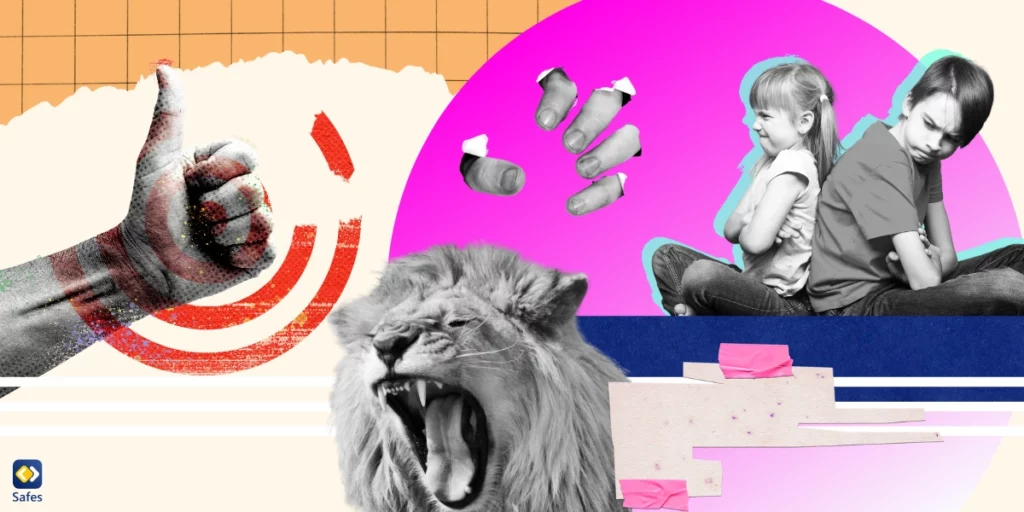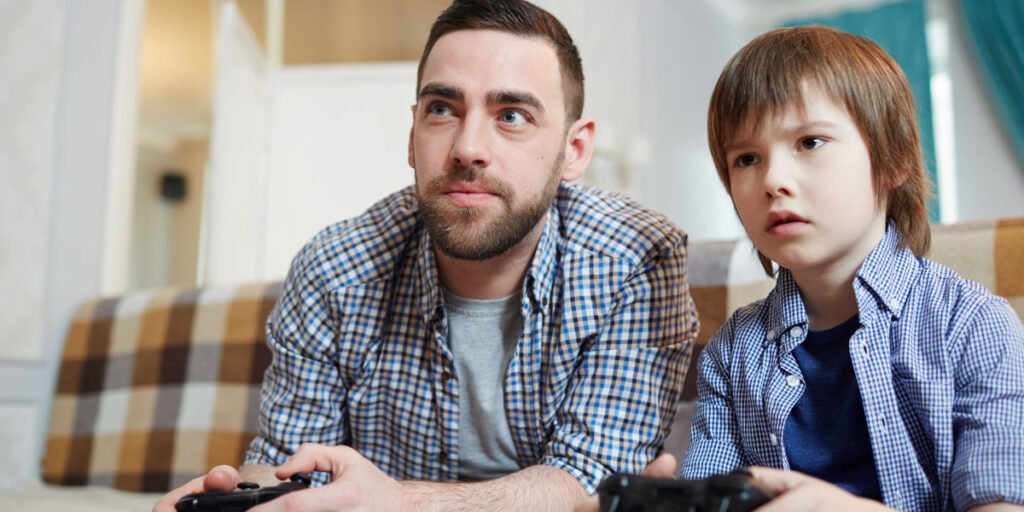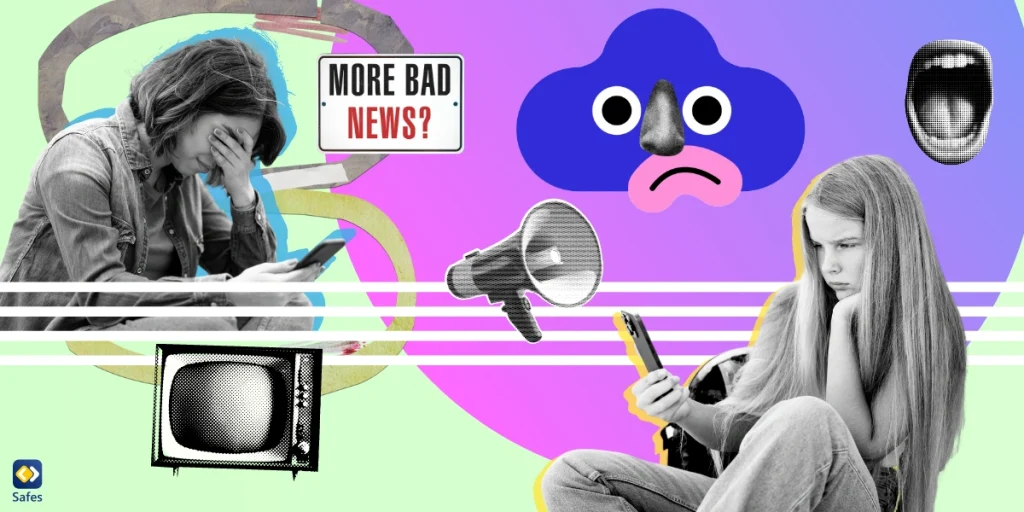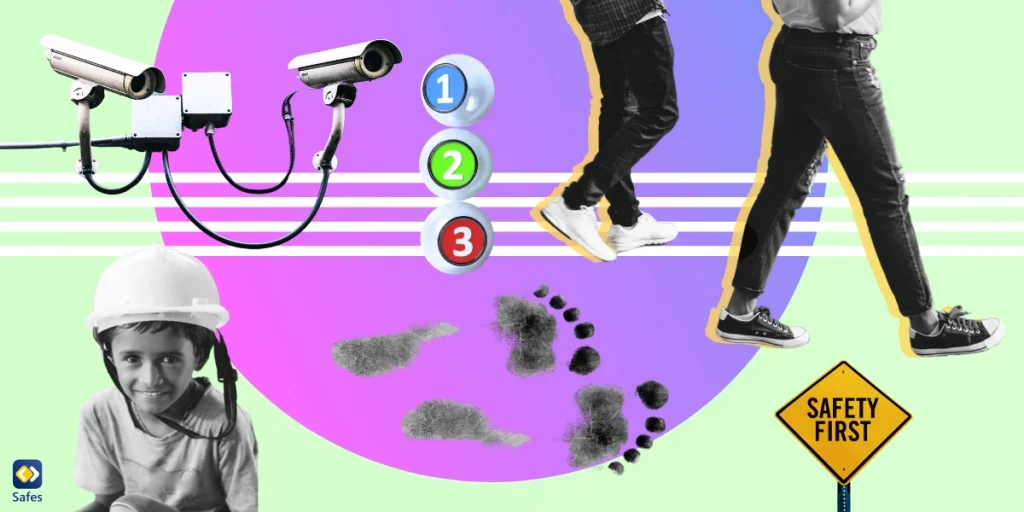Outrage culture, call-out culture, and cancel culture in social media are all terms that you constantly hear these days. As a parent, it’s important to familiarize yourself with these terms and get to know the potential risks. Outrage culture, a term that encompasses the two other terms, refers to a collective attempt to express anger and negative feedback to a particular subject or person. This can be done upon receiving pieces of information that the public finds unacceptable, such as social injustices, political issues, or just personal celebrity drama.
Download and Start Your Free Trial of the Safes Parental Control App
This culture of outrage has gained momentum with the advent of social media, because such platforms make it really easy to spread your rage and join a community of your opinion. While outrage culture may have its benefits and drawbacks, being entangled in this web of sensitive social issues is not exactly healthy for children. In this blog post, we’ll try to shed light on the mechanisms of outrage culture and provide you with some ways to protect your children from getting involved in it.
Understanding Outrage Culture
What fuels outrage culture is usually moral indignation. A mistake in someone’s behavior is perceived, and then it spirals into a cycle of condemnation and rage. With social media, this manifestation of outrage has become easier than ever, because messages can be instantly shared and received by a great number of people.
Outrage culture examples can be campaigns, posts, and viral hashtags that draw more and more attention and judgement to a specific topic. A person who is the target of such behavior could have committed a minor misstep. However, with the widespread anger pointed at him, he might not get a chance to explain himself. Therefore, he might risk reputational damage, losing his job, and online and offline harassment.
While outrage culture can cause a bigger-than-expected reaction of rage towards a minor misstep, many times it can be morally justified and constructive. The aim of this blog post is not to evaluate the morality of outrage culture, but to study the dangers associated with children’s participation in it.
The Impact on Children
Being entangled in outrage culture can have negative effects on children. Children’s minds are young and susceptible to the violent nature of such intense reactions and harsh content. Therefore, exposure to outrage online and taking part in it can have an adverse impact on their emotional development.
On the other hand, outrage culture can stop children from developing critical thinking skills and forming their own opinions. These groups tend to propose a popular opinion as the only truth. Driven by mob mentality, children may find no choice but to internalize and support it.
These negative effects on children are the reason why they should be shielded from getting involved in outrage culture. But this doesn’t mean that sensitive social issues should be kept from them. Parents should have age-appropriate discussions with their children about what’s going on in the world and teach them to spot fake news on social media.
Social Media and Outrage Culture
Social media can play a major role in the spread of outrage culture. These platforms are built based on algorithms that strive to get as much engagement as possible, promoting echo chambers, where users will most likely see content that aligns with their own beliefs and opinions. This assemblage of people with similar opinions contributes to the formation of online clusters that thrive on outrage and criticism.
Social media platforms have put in efforts to detect and exclude such online behaviors; and while that has been effective to some extent, it’s not enough when it comes to children’s safety. Additionally, these platforms have been struggling with finding a sweet spot between freedom of speech and online safety. That’s why parents need to take proactive measures for protecting their children.

Parental Role in Protecting Children
Parents play a vital role in protecting their children from the negative aspects of outrage culture. Monitoring and managing children’s social media usage is essential to ensure their safety and well-being. By setting clear boundaries, parents can help children develop a healthy relationship with social media and avoid the pitfalls of outrage culture.
Moreover, parents should actively engage in discussions about responsible online behavior. Teaching children about the potential consequences of their actions online, the importance of respecting others’ perspectives, and the limitations of online activism can empower them to navigate the digital world with integrity and thoughtfulness. To help their children effectively, parents must first get to know the outrage culture psychology. Empathy and critical thinking are human traits that help individuals think twice before taking part in a cycle of anger and criticism.
Creating a Safe Digital Environment
Creating a safe digital environment for children involves a combination of technological tools and fostering open communication. Parental control apps can assist in managing children’s online activities, allowing parents to set time limits, block inappropriate content, and monitor their online interactions. These tools can provide parents with peace of mind while still respecting their children’s privacy. All of this has been made possible with Safes parental control app, which has lots of features that ensure your child’s online safety from all aspects. It’s easily installed on all devices, whether your family is on iOS, Android, Windows, and more. Start securing your child’s online experience with a free trial of Safes today. All you have to do is to install the app and bring safety to your home!
Additionally, parents should promote positive online engagement and digital well-being by talking to their children about what behavior is and isn’t acceptable on the internet. There are lots of beneficial accounts out there that your child can follow. Encouraging them to spend their online time engaging with these kinds of content can counterbalance the negative effects associated with outrage culture. By fostering regular conversations about children’s online experiences, not only will they be educated on the matter, but also you will be notified of any potential dangers.
Conclusion
The list of things that can threaten children online seems to never end. Getting involved in outrage culture is one of those things. Being exposed to its unsympathetic nature can affect their mental well-being and prevent them from developing original thoughts. Parents need to be aware of the risks of outrage culture and protect their children by understanding its dynamics. Remember, you can take an active part in your children’s digital lives. Take this chance and guide them towards responsible and healthy use of technology.
Your Child’s Online Safety Starts Here
Every parent today needs a solution to manage screen time and keep their child safe online.
Without the right tools, digital risks and excessive screen time can impact children's well-being. Safes helps parents set healthy boundaries, monitor activity, and protect kids from online dangers—all with an easy-to-use app.
Take control of your child’s digital world. Learn more about Safes or download the app to start your free trial today!




